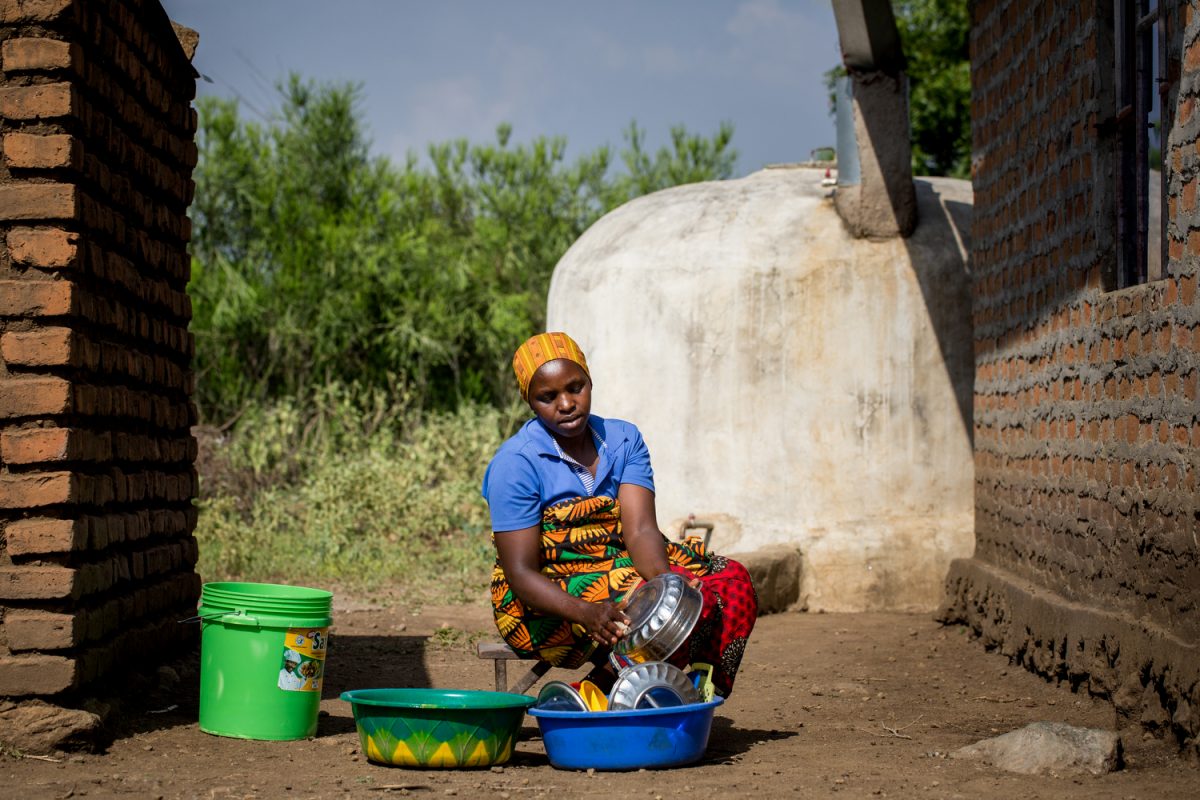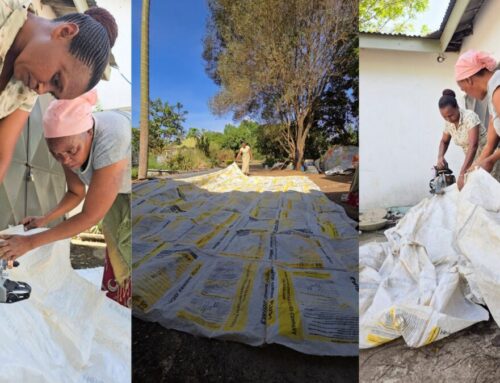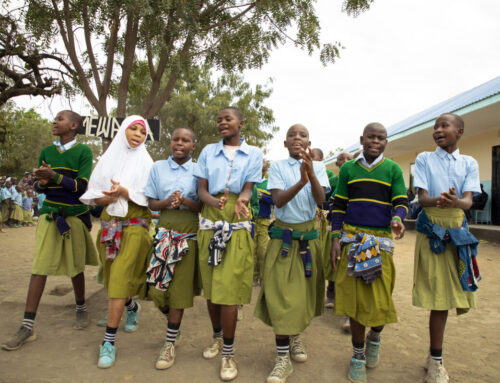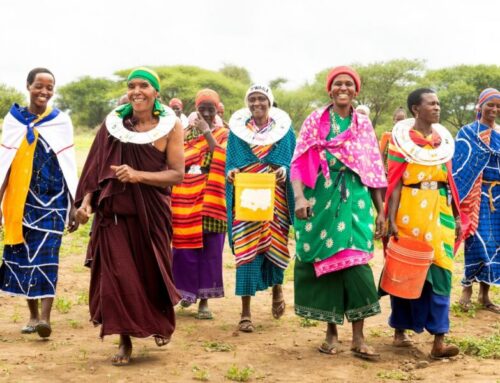When Save the Rain first got to Lositeti, they met a place deforested, barren, and crippled by water scarcity. The only thing that grew there was faith— like a constant prayer for better days to come. It is no exaggeration to say that water affects every aspect of existence. So, eager to make a difference, the team put out a call to hire women to help them build rainwater harvesting tanks.
The Masai tribe predominantly populates Lositeti. In this culture, polygamy is common. To ensure an even spread of this golden employment opportunity, the women of the village all agreed that only one wife per household would be hired. She would split her pay with the other wife carrying out her workload in the home. It was the finest example of cooperation and forward-thinking. Since then, over 200 households received a system, as did the school – and the transformation these women have brought about has been remarkable.
The Road to Water
One of them is young. Her voice is almost childlike. When she introduces herself as Mary Samwel, someone – unable to believe she’s already married – asks whether Samwel is the name of her father or her husband. She laughs; it’s her husband’s name. They have three children together. But her youthfulness is underpinned by a sureness and strength — it’s what water has brought to these women.
She used to walk for at least 6 hours for water. Sometimes you’d arrive at the source, and it’d be dry, so you’d have to go further. Your children were alone at home, hungry. Your husband would be angry by the time you returned. Even pregnancy didn’t exempt you. There were women whose unborn babies suffered the hard miles and heavy lifting of buckets filled with dirty water. Daughters stayed back from school to help with the chores their mother hadn’t been able to do or fetch water themselves. Sometimes there were wild animals en route. Other times, it was the people you’d have to watch out for. Everyone knew someone who’d been raped and left pregnant.
Save the Rain has interviewed more than 1,000 women. 68% of them reported experiencing physical or sexual violence while searching for water. 59% of them have had that experience more than half a dozen times.
New Capacity for Growth
The rainwater tank changed everything. Now, her kids are in school. Household chores go like clockwork, so she has time for her businesses selling eggs and fruit. Her veggie garden is abundant enough to nourish her family and yield a surplus that she sells, too.
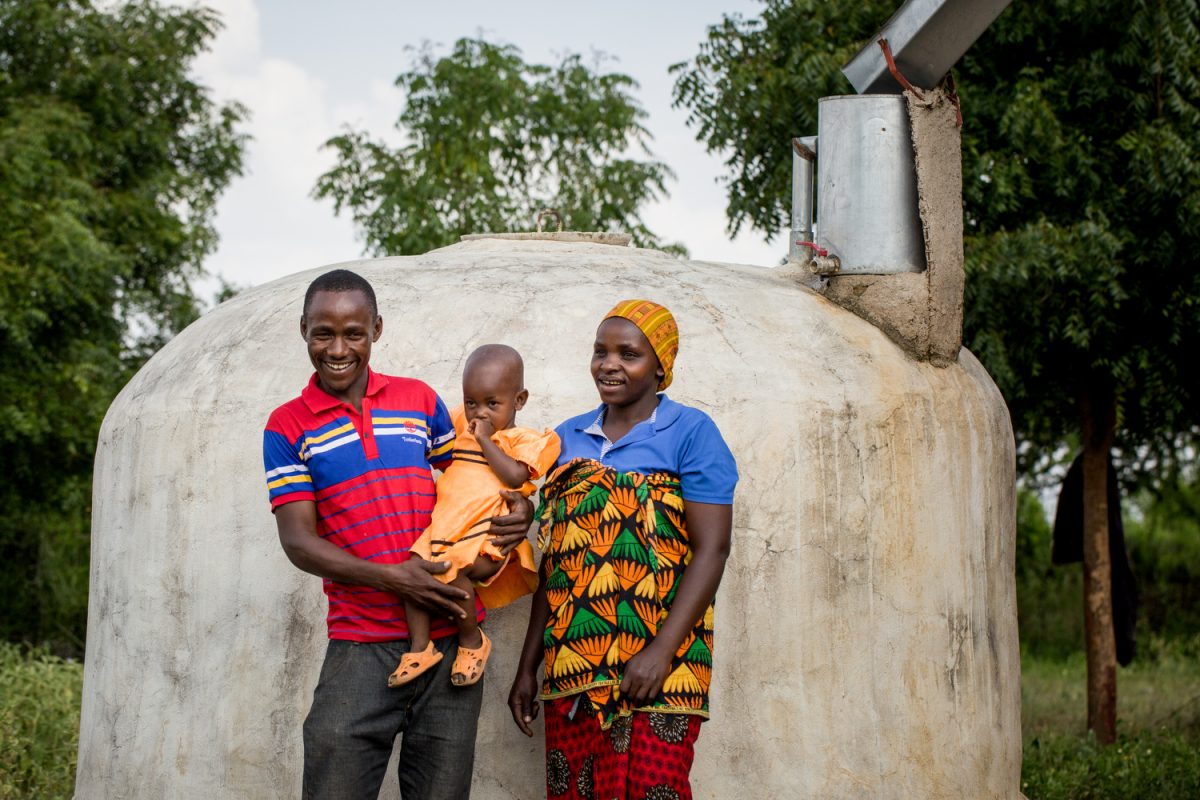
Upendo, A Group of Love
Mary is a member of the Upendo Group. It’s 100 members strong and one of three lending cooperatives in Lositeti. Clean, safe water has freed up funds that they’ve pooled to lend a lump sum to one member at a time, giving her the means to manifest dreams. Mary has used her loans to build onto their home. Next, she plans to buy her husband a motorbike to upscale his business.
It’s a group of love, she explains. That’s what ‘upendo’ means. Looking at Lositeti, it’s clear: If this is what you build your community on, whatever you give will be multiplied back to you and uplift everyone it touches.
~~~
Help Women Like Mary and the Upendo Group
Because water touches everything, water changes everything – especially the earth. By supporting our clean water campaign, one of the things you are helping us do is plant trees. Planting trees calls in more rain. More rain means more water for everyone and everything.
100% of public donations directly fund our projects
